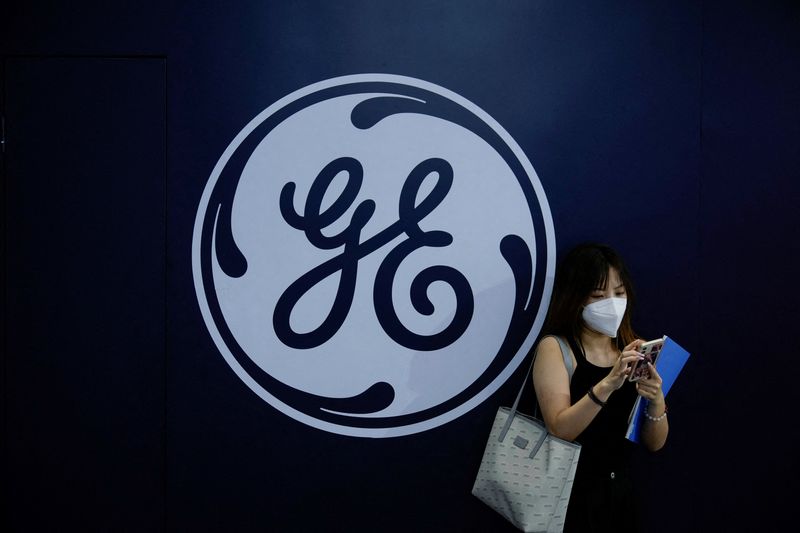By Rajesh Kumar Singh and Abhijith Ganapavaram
CHICAGO (Reuters) - General Electric (NYSE:GE) Co on Tuesday exceeded expectations for quarterly earnings on robust demand for jet engines and power equipment, but gave a disappointing full-year outlook as problems persisted at its renewable energy business.
The Boston-based conglomerate is grappling with inflationary headwinds, which were also flagged Tuesday by fellow industrials 3M and Raytheon Technologies (NYSE:RTX) Corp. In addition, the U.S. economy is cooling, business surveys showed, clouding the corporate outlook for the coming year.
In an interview, Chief Executive Larry Culp said that while demand for freight carriers was slowing, the company was confident a recovery in the aerospace industry and the need to reduce carbon emissions would underpin demand for GE's products.
"We probably have a level of resiliency that will serve us well," Culp told Reuters.
GE's shares were down about 0.5% in morning trade.
Culp said the company was still wrestling with inflationary and supply-chain pressures. He expects inflation to be a "test" for GE even as it adjusts its prices to offset higher costs.
GE is not alone. Raytheon (NYSE:RTN) expects labor and material inflation to cost it about $2 billion in 2023, while 3M said inflation was boosting the cost of raw materials and logistics.
Culp said while GE had not seen any material improvement in supply-chain problems, it has sought to work around them. For example, the company has deployed hundreds of employees at sites of its aerospace suppliers to ease some of the bottlenecks.
GE expects full-year adjusted earnings in the range of $1.60 to $2.00 per share this year, lower than analysts' average forecast of $2.36 per share, according to Refinitiv.
The company forecast earnings of 10-15 cents a share for the first quarter, below the 19 cents a share estimated by analysts. It also expects to burn cash in the March quarter, which tends to be its weakest.
It forecast an operating loss of between $200 million and $600 million at its energy business GE Vernova in 2023.
The company's renewable energy business has been facing challenges due to inflation and supply chain pressures. The unit reported a loss of $2.2 billion in 2022.
GE is reducing global headcount at the onshore wind unit by about 20% as part of a plan to restructure and resize the business.
Culp said the onshore business is expected to get a boost following the restoration of the tax credit for wind projects.
He said high inflation is also posing a challenge for offshore wind business as it is making customers review the economics of their projects.

GE, which completed the spin-off of its healthcare unit earlier this month, has plans to spin off its energy businesses, including renewables, into a separate company next year.
Adjusted profit for the fourth quarter came in at $1.24 per share, beating analysts' average estimate of $1.13 per share.